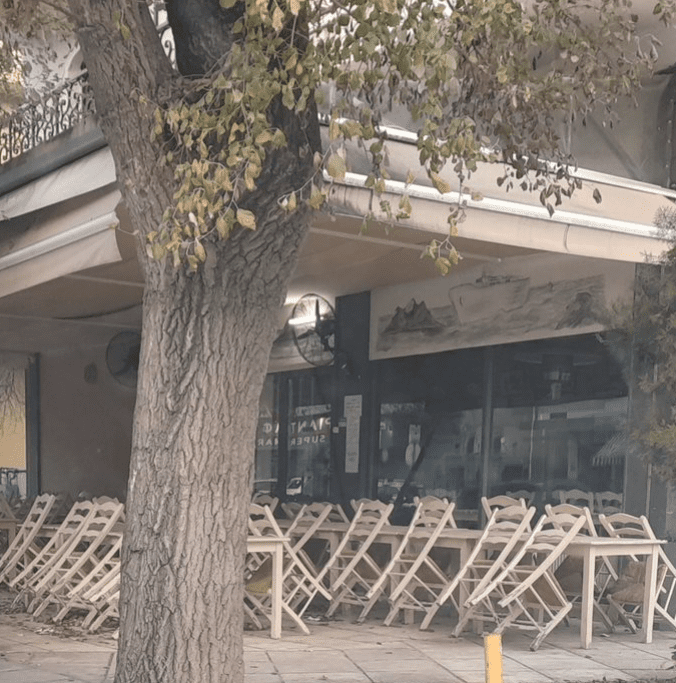Anthony Papagiannis
Thessaloniki, Greece
 |
| Lockdown in Thessaloniki. Photo by the author. |
Death is the one absolute and unexceptional certainty in life. In the Bible we read that there is a time for everything, including a time to die [Ecclesiastes 3:2]. Is there ever a “right” time to die? Faced with such a question, we often consider that anyone who has achieved their aims in life, who has seen children and grandchildren, has completed some memorable work, has reached or exceeded the expected lifespan, may “rightly” depart from this world. On the other hand, we often feel that somebody who dies leaving behind significant unfinished business, from an unexpected disease or tragic accident, or at a relatively young age, has died “wrongly” or “unjustly.”
In the climate of the COVID-19 pandemic we currently live in, I often hear people complain that this is the wrong time to die. In a palpable way this disease has estranged us not just from each other, brutally curbing our social engagement routines, but also from the reality of death. This sounds paradoxical, as the disease continues to claim many victims on a daily basis. And yet the rites of passage from this world have been affected profoundly, making death distant and alien, and rendering bereavement more traumatic. This is part of the broader social impact of the pandemic.
The rules of distancing have severely restricted attendance at funeral ceremonies. With only a single-figure number of very close mask-faced people allowed to be present, the majority of relatives, friends, and social associates of the deceased person cannot even stand by and pay homage. Services are conducted in empty churches for people whose passing, under different circumstances, would have drawn a real crowd. Most of us have to rely on reading obituaries and tributes about persons we knew and respected and admired, wishing that we had been able to pray at their bedside, touch their coffin, offer a flower, even plant a kiss on their cold brow, as custom would dictate. Now even viewing the dead is out of bounds if the event is COVID-related: the body is bagged, the coffin is tightly lidded, and even the burial ground is considered potentially contaminated. Public health officials have opted to treat these deaths like Ebola deaths, without any evidence that the soil may somehow welcome the virus and allow it to spread. People cannot help feeling deprived of their one chance to bid farewell to the departed in a culturally appropriate way. Such deprivation contributes to the development of complicated grief and fosters feelings of guilt for the omission of traditional duties to the dead person. And this comes on top of the resentment for being left out of the care of the sick person before death.
Sooner or later, in one way or another, the pandemic will abate, the number of cases will wane, COVID deaths will become a haunting memory, and social life will return to some form of new normality. However, the psychological scars of the disease may take longer to heal. We should help prevent such lasting trauma by relaxing our rules of social engagement concerning death, so that it will feel less “wrong” if it occurs.
ANTHONY PAPAGIANNIS, MD, MRCP(UK), DipPallMed, FCCP, is a practicing pulmonologist in Thessaloniki, Greece. He graduated from the Aristotle University of Thessaloniki Medical School. He trained in Internal Medicine in Greece and subsequently in the United Kingdom, and specialized in Pulmonary Medicine. He also holds a postgraduate Diploma in Palliative Medicine from the University of Cardiff, Wales, United Kingdom. He is a postgraduate instructor in palliative medicine in the University of Thessaly, Larissa, Greece. He also edits the journal of the Thessaloniki Medical Association, and blogs regularly.
Winter 2021 | Sections | End of Life

Leave a Reply